Sustainable Energy Strategy for Iran
New open access book provides analyses and impulses needed to rethink Iran's energy strategy
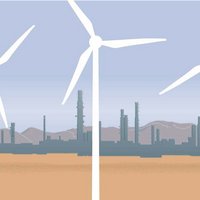
New open access book provides analyses and impulses needed to rethink Iran's energy strategy
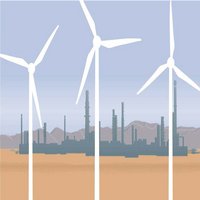
For more than twelve years a team of Iranian and German scientists has been analyzing the Iranian energy system from the point of view of sustainable future development perspectives. Their result: Iran is a dynamic country endowed with rich natural resources, including high amounts of fossil and renewable energies and a young and growing population. If properly utilized and appreciated, these are key assets for the design of a sustainable energy system and a bright future for Iran. However, due to low energy prices and subsidized energy consumption (among others) today Iran has a high per-capita energy consumption and very low economic output per unit of energy consumed. The inefficient use of energy constitutes a major hurdle to innovation and economic development and has a negative impact on the public budget and the environment. Therefore, the implementation of a sustainable energy strategy in Iran would have multiple benefits for Iran as well as for the international community.
The new book "Sustainable Energy Strategy for Iran" is an important result of the long-term academic cooperation between Iranian researchers from several universities and the Iranian Energy Association and German researchers from the Wuppertal Institute for Climate, Environment and Energy, Büro Ö-quadrat and the University of Osnabru?ck. The initiative started in 2003 to assemble acquired knowledge on strategies regarding sustainable energy from Germany as well as the rest of the world and make the most recent and up-to-date research on energy efficiency and renewable energies accessible to scientific and political institutions in Iran.
The authors hope to make a contribution to the emerging and rapidly growing discussion within Iran as well as between Iran and other countries such as Germany on better energy alternatives and the respective opportunities for investment, innovation and modernization. The work presented in the book should provide ideas for such opportunities and create a vision of how this could contribute towards developing a more sustainable, efficient and prosperous future energy system for Iran. Prof. Dr. Stefan Lechtenböhmer, co-author of the book, emphasizes that "changing existing trends into new and more promising developments requires a clear analysis of the current situation and the rationales behind it. Therefore, the book involves a thorough analysis of the potentials for change as well as the challenges and opportunities associated with more active focusing of energy policy and a more efficient and sustainable energy system."
Press release by Wuppertal Institute for Climate, Environment and Energy
Responsible: Prof. Dr. Uwe Schneidewind, President
Contact: Dorle Riechert, Public Relations
Tel. +49 202 2492-180, Fax +49 202 2492-108
E-mail: dorle.riechert@wupperinst.org
Further information
Links
Downloads
Contact
Printable pictures
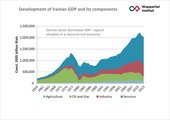
Notes: GDP is in constant 2005 billion rials (source: Central Bank of Iran, Economic Data, 2014). Source: Sustainable Energy Strategy for Iran, Wuppertal Spezial 51, Figure 2.1
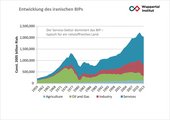
Anmerkungen: BIP in Billionen Rial (2005). (Quelle: Iranische Zentralbank, Wirtschaftsdaten, 2014). Quelle: Sustainable Energy Strategy for Iran, Wuppertal Spezial 51, Abbildung 2.1
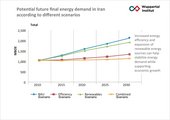
Notes: Summary of the scenario results (2010-2030), BAU = Business-as-usual. Source: Sustainable Energy Strategy for Iran, Wuppertal Spezial 51, Figure 4.17
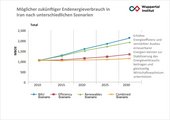
Anmerkungen: Zusammenfassung der Szenarioergebnisse (2010-2030), BAU = Business-as-usual. Quelle: Sustainable Energy Strategy for Iran, Wuppertal Spezial 51, Abbildung 4.17
